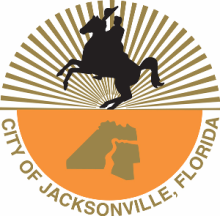Centennial, Colorado: Voters To Decide on Authority to Build Fiber Network
The people of Centennial, Colorado, will have the opportunity to vote this fall on the option to allow their city to provide indirect telecommunications services. Located south of Denver in the metro area, Centennial has over 100,000 residents. Recently, the City Council unanimously approved the following ballot question for the upcoming elections. The city press release shared the wording voters will see in November:
SHALL THE CITY OF CENTENNIAL, WITHOUT INCREASING TAXES, AND TO RESTORE LOCAL AUTHORITY THAT WAS DENIED TO ALL LOCAL GOVERNMENTS BY THE STATE LEGISLATURE, AND TO FOSTER A MORE COMPETITIVE MARKETPLACE, BE AUTHORIZED TO INDIRECTLY PROVIDE HIGH-SPEED INTERNET (ADVANCED SERVICES), TELECOMMUNICATIONS SERVICES, AND/OR CABLE TELEVISION SERVICES TO RESIDENTS, BUSINESSES, SCHOOLS, LIBRARIES, NON-PROFIT ENTITIES AND OTHER USERS OF SUCH SERVICES, THROUGH COMPETITIVE AND NON-EXCLUSIVE PARTNERSHIPS, AS EXPRESSLY PERMITTED BY ARTICLE 29, TITLE 27 OF THE COLORADO REVISED STATUTES?
As we note on the Community Network Map, Colorado requires a majority referendum unless incumbents refuse to offer requested services. This vote would not establish a utility or approve funding, but would allow community leaders to investigate municipal network possibilities. From a Villager article:
“I’m not sure we know exactly where this could go in the future,” District 4 Councilman Ron Weidmann said at the Aug. 5 council meeting. “But let it breathe and let it take shape. I think we need to give this thing a chance.”
Over 40 miles of city-owned fiber run under major rights-of-way to manage traffic signals. Centennial hopes to utilize the excess capacity and work with private providers to bring connectivity to local businesses, municipal government, schools, libraries, and possibly residents.
Like other Colorado communities, Centennial realizes its vitality depends on its ability to ensure better Internet access to existing and potential employers. Centennial's business community complains that the lack of high-speed connections hold them back.




